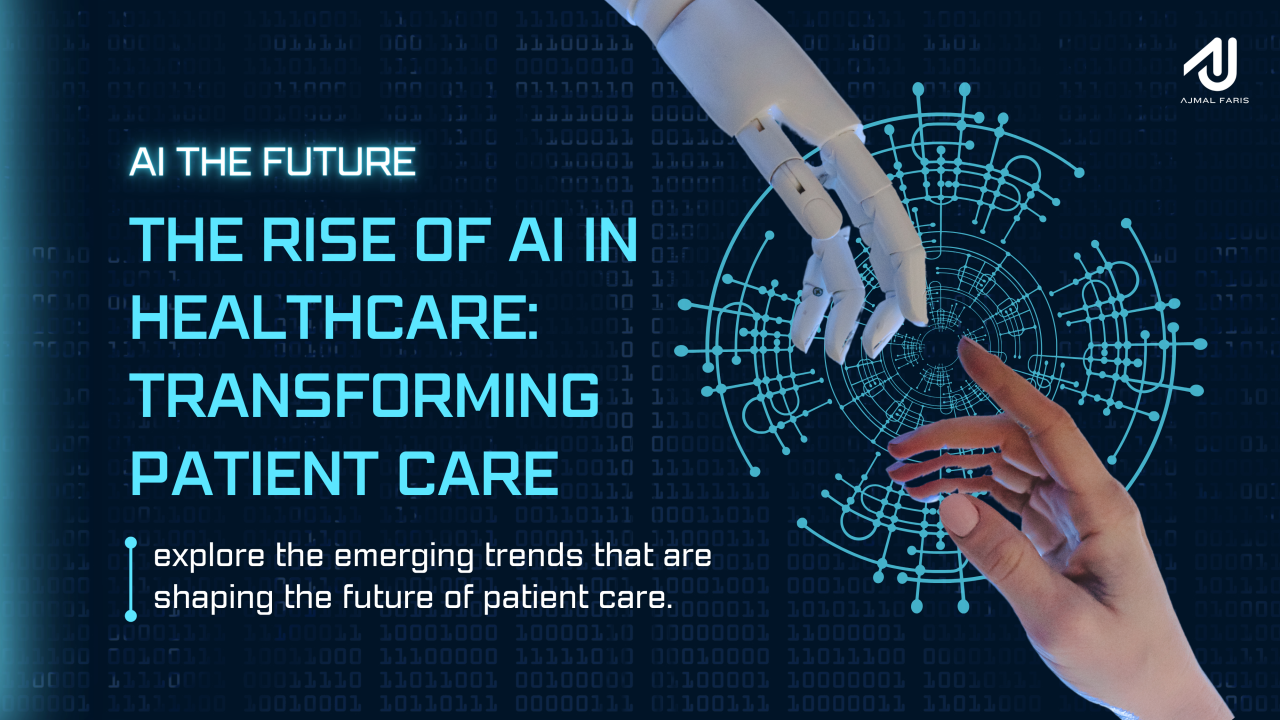
The Rise of AI in Healthcare: Transforming Patient Care
The healthcare industry is on the cusp of a revolution, and artificial intelligence (AI) is leading the charge. AI is transforming patient care in profound ways, from diagnosing diseases more accurately to streamlining clinical workflows. In this article, we'll explore the rise of AI in healthcare, its applications, benefits, and future directions.
Applications of AI in Healthcare
1. Disease Diagnosis:
AI-powered systems can analyze medical images, lab results, and patient data to diagnose diseases more accurately and quickly than human clinicians. For instance, AI-assisted computer vision can detect breast cancer from mammography images with high precision.
2. Personalized Medicine:
AI helps tailor treatment plans to individual patients based on their genetic profiles, medical histories, and lifestyle factors. This personalized approach leads to more effective treatment outcomes and reduced side effects.
3. Drug Discovery:
AI accelerates the drug development process by identifying potential drug targets, predicting drug efficacy, and streamlining clinical trials.
4. Robot-Assisted Surgery:
AI-driven robots assist surgeons during operations, enabling more precise and minimally invasive procedures.
5. Virtual Nursing Assistants:
AI-powered chatbots offer patients personalized health advice, support, and reminders, improving patient engagement and outcomes.
6. Predictive Analytics:
AI algorithms analyze patient data to predict high-risk patients, prevent hospital readmissions, and optimize resource allocation.
Benefits of AI in Healthcare
1. Improved Accuracy:
AI reduces diagnostic errors and improves treatment outcomes.
2. Enhanced Patient Experience:
AI-powered systems provide personalized care, support, and engagement.
3. Increased Efficiency:
AI streamlines clinical workflows, reducing administrative burdens and wait times.
4. Cost Savings:
AI reduces healthcare costs by optimizing resource allocation, preventing unnecessary procedures, and improving patient outcomes.
5. Accessibility:
AI-powered telemedicine platforms expand access to healthcare services, especially for underserved populations.
Future Directions
1. Explainable AI:
Developing AI systems that provide transparent and interpretable decisions.
2. Ethical Considerations:
Addressing concerns around data privacy, bias, and inclusivity.
3. Integration with Wearables and IoT:
Leveraging patient-generated data from wearables and IoT devices.
4. Continuous Learning:
Developing AI systems that learn from real-world data and adapt to new scenarios.
Conclusion
AI is transforming patient care in profound ways, from diagnosis to treatment and beyond. As AI continues to evolve, we can expect even more innovative applications, improved patient outcomes, and a more efficient healthcare system. Embracing AI's potential while addressing ethical considerations will be crucial in shaping the future of healthcare.






